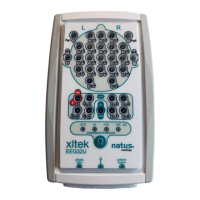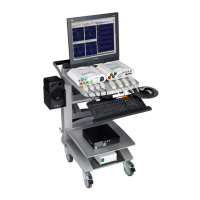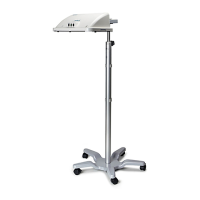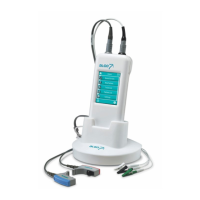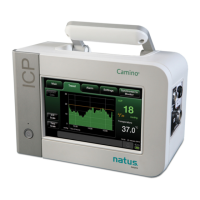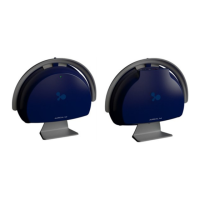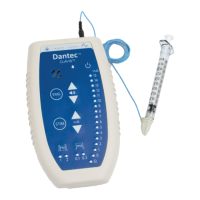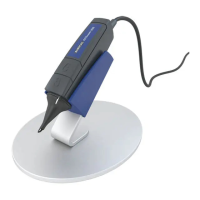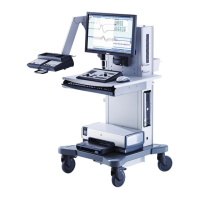User and Service Manual XLTEK EEG32U Amplifier
5
Intended User
The EEG32U amplifier is intended to be used by trained medical professionals such as neurologists, EEG technicians, intensivists
and researchers and is designed for use in clinical environments such as hospital rooms and epilepsy monitoring units.
Patient Target Group
EEG32U amplifier can be used with patients of all ages but is not designed for fetal use.
Residual Risks
There are no known residual risks or side effects for procedures performed with the EEG32U amplifier. Please note the
Warnings and Cautions before applying power to and using the system. Utilize best practices in your clinical environment.
Medical Conditions
Patients of all ages requiring EEG can be in all countries and can have all ages. EEG32U amplifier in conjunction with
NeuroWorks is used for patients suffering from the following clinical cases:
• Epilepsy
• Head trauma
• Patients suffering from “Stroke” (Vascular accident in the brain)
• ICU patients requiring surveillance of brain disorders or brain maturity (pediatric)
• ICU patients with suspicion of brain death
• Diagnose Tumors
• Monitor brain function during surgical procedures
Clinical Benefit
The EEG32U amplifier aids in measuring the electrical brain activity and in diagnosing brain disorders, such as epilepsy and
other seizure disorders.
Recording EEG with the EEG32U amplifier does not directly affect outcome; the collected EEG activity will allow the physician to
decide on treatment. Treatment directed by data recorded with the EEG32U amplifier may result in better outcomes than
treatment informed solely by data from clinical assessment.
Essential Performance
Essential performances of the EEG32U amplifier are identified in the standard IEC 60601-2-26:2012. Essential performance
relates to the quality of the signal recorded from the amplifier. Specific essential performances are:
1. accuracy of signal reproduction
2. dynamic range and differential offset voltage
3. input noise level
4. frequency response
5. common mode rejection
The definition of these essential performances can be found in the standard.
Clinical Performance
1. High quality signals resulting from specifications such as
• Noise level-Low
• High frequency range
• High common mode rejection
2. Ability to record artifact-free signals
3. Number of channels; ability to record studies using a full 1-20 EEG scheme
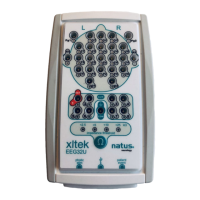
